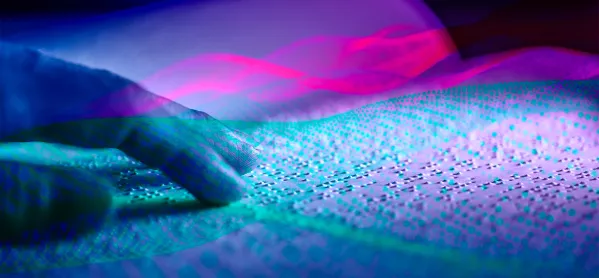A new sign-language lexicon to help deaf people navigate digital technology has been shared by University of Edinburgh experts - and they hope it will lead to more deaf school students pursuing qualifications and careers in the digital sector.
The development team has created more than 500 British Sign Language (BSL) signs for the glossary, covering computer science, cyber security, data science and software development.
A UK-wide team of eight deaf people who are tech experts spent eight months with sign linguists developing and testing the new signs for the glossary.
They say that a standard glossary will help deaf people in schools, colleges, universities and workplaces, and that the new signs make it much easier to talk about technology.
Deaf people often have to spell out each individual letter of specialised technology terms. Now, popular tech words and phrases covered in the new glossary include “ethical hacking”, “firewall”, “data breach”, “machine learning” and “phishing”.
Secondary student Billy-Jack Gerrard, who attends St Augustine’s High School in Edinburgh, is deaf and wants to study artificial intelligence and computer science at university.
“The terms will make life so much easier and, in turn, be far more inclusive for deaf people like me who are wanting to pursue a digital career,” he said.
Development team member Ben Fletcher, who is principal engineer with the Financial Times, said it was crucial to create a common language for deaf people in technology.
“I have studied and worked in computing throughout my whole life, but tech and BSL have often been a difficult combination,” he says.
“There’s a huge list of computing terms, very few of which have dedicated and widely recognised signs, and others I just had to make up. It was very frustrating.”
Phil Ford, head of digital technologies and financial service at Scottish government agency Skills Development Scotland, said the new BSL technology glossary would “help deaf people get jobs in tech while also enhancing inclusivity - all with the ultimate aim of plugging the skills gap in a sector that is vital for Scotland’s economy”.
The full list of signs can be found on the Scottish Sensory Centre website but Kate Farrell, of the Data Education in Schools initiative, is keen to keep adding to the list.
She says: “Like the technology itself, which is constantly changing, the accompanying language has to evolve - we, therefore, welcome the continued input from technologists.”
Project leader Dr Audrey Cameron, a chancellor’s fellow at the University of Edinburgh’s Moray House School of Sport and Education, says: “The sign-development team has been awesome and creative in developing these visual representations of all the terms.”
The project is supported by Skills Development Scotland and the Scottish Sensory Centre, which is based at the University of Edinburgh.
It is a key strand of the University of Edinburgh’s Data Education in Schools initiative, which is part of a wider programme called the Data-Driven Innovation (DDI) Skills Gateway. DDI Skills Gateway is funded as part of the £1.3 billion Edinburgh and South East Scotland City Region Deal, which aims to drive economic growth and includes investment in skills and employability.
The Scottish Sensory Centre has hosted the British Sign Language Glossary of Curriculum Terms since 2007. The BSL glossary is widely used by teachers of deaf children, deaf young people, their support workers and parents.
*Find the updated BSL glossary here.




